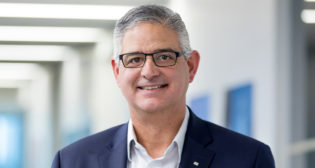
Creating a Pathway For Others
Written by Sharon Lee, Associate Director Programme Management, UK Rail, Arup
It’s not easy being a trailblazer. First born. First in the office. First woman. First black woman. I would be lying if I said I’d not seen and faced bias during my 25-year career working as an engineer and asset manager. However, despite these barriers, I succeeded. Unfortunately, this doesn’t mean others will. These barriers mean that many of our talented and driven Black, Asian and Minority Ethnic (BAME) peers are still finding it difficult to make it, both finding a way “in” and climbing to the top.
If we look across the United Kingdom, only 6% of top management jobs in engineering are held by BAME leaders, but 12.5% of the working population comes from BAME groups. My industry, our industry, is still more than 90% white and/or male. Some of rail’s biggest employers—including teams and organizations whose work I very much admire—do not have BAME representation on their executive leadership teams. It therefore won’t come as a shock that there is a dearth of BAME role models.
I’m often asked what makes a role model. For me, primarily, it is someone who makes themselves accessible to others. Someone who is happy to share their insight and experience—both good and bad—and provide support and resources for others to learn and progress.
When I began my engineering career, I was acutely aware of the lack of role models who looked like me, people who would appreciate my nuances and recognize that my journey is different. There’s been change since those days, but is it enough?
Out of the current crop of higher-education engineering students in the UK, 30% come from BAME backgrounds. The industry is going to look very different soon. With so few senior leadership positions in engineering occupied by BAME individuals, it’s fair to say that many of those in this pipeline of talent will share a similar experience to me.
Until people see people like themselves succeeding, my experience tells me that it is hard for them to believe they can. Observing and learning from role models is crucial in an individual’s professional development. More-senior BAME peers recently interviewed me for the Black British Business Awards. This was a new experience for me and personally very powerful, leaving me feeling validated and galvanized.
Having recently become part of Arup’s UK Rail leadership team, I feel determined to use my position to help create a pathway for others, and I would like to call on other leaders to do the same—and we can and should do more. Of course, it’s incumbent on employers to tackle the systemic issues around the lack of BAME diversity. But taking personal responsibility can make a real difference.
How do we do more? We need to proactively consider ourselves, and act like role models, at all levels, not waiting for permission. We need to be deliberate and courageous, willing to share our perspectives and experiences—using our voices to tell our stories that “we are here” to BAME individuals—talking of our background, achievements, failures and barriers overcome or not.
Make yourself accessible. Proactively offer support in your organizations to others. Be visible at schools and career talks. Offer your time to mentoring schemes, to judging awards and conference speaking slots. Be visible. Your voice and presence will make the difference.
In doing these things, we will empower the next generation of BAME leaders, preparing them to be resilient, knowing others have gone through what they are experiencing today, and inspiring them to succeed.
Being the first in anything is tough as a role model, but what makes it so rewarding is understanding that you have the power to pave the way for others and ensure you will not be the last.

Sharon Lee is an Associate Director at global engineering consultancy Arup. She is an asset manager and is part of the UK Rail leadership team, helping lead the rail business within Arup’s Project and Programme Management division. Lee has played a significant role in growing the business; her project portfolio includes work on High Speed 1, helping form its Parliamentary Bill, and creating the geotechnical works for Stratford International Station and the railway between Fawkham Junction and Medway Viaduct. Additionally, Lee has worked for Network Rail, where she managed four routes, monitoring efficiency, budget and progress. She was recently named STEM Leader of the Year at the 2019 Black British Business Awards.



